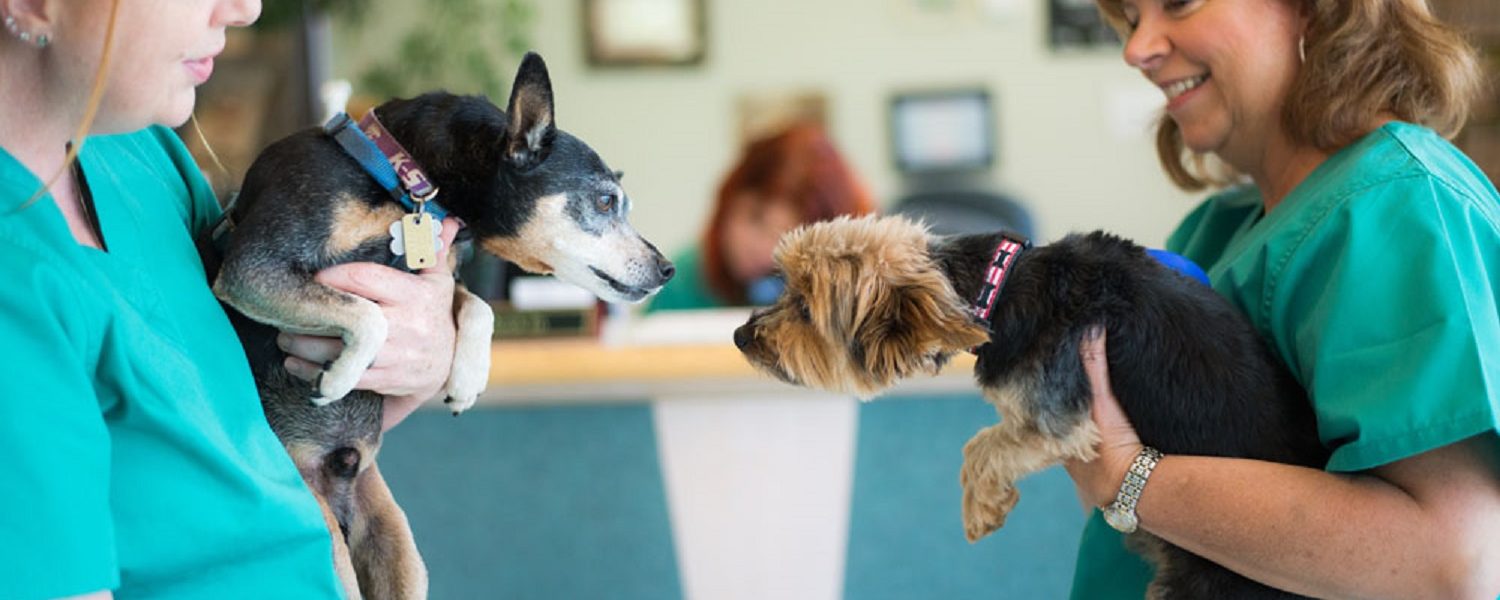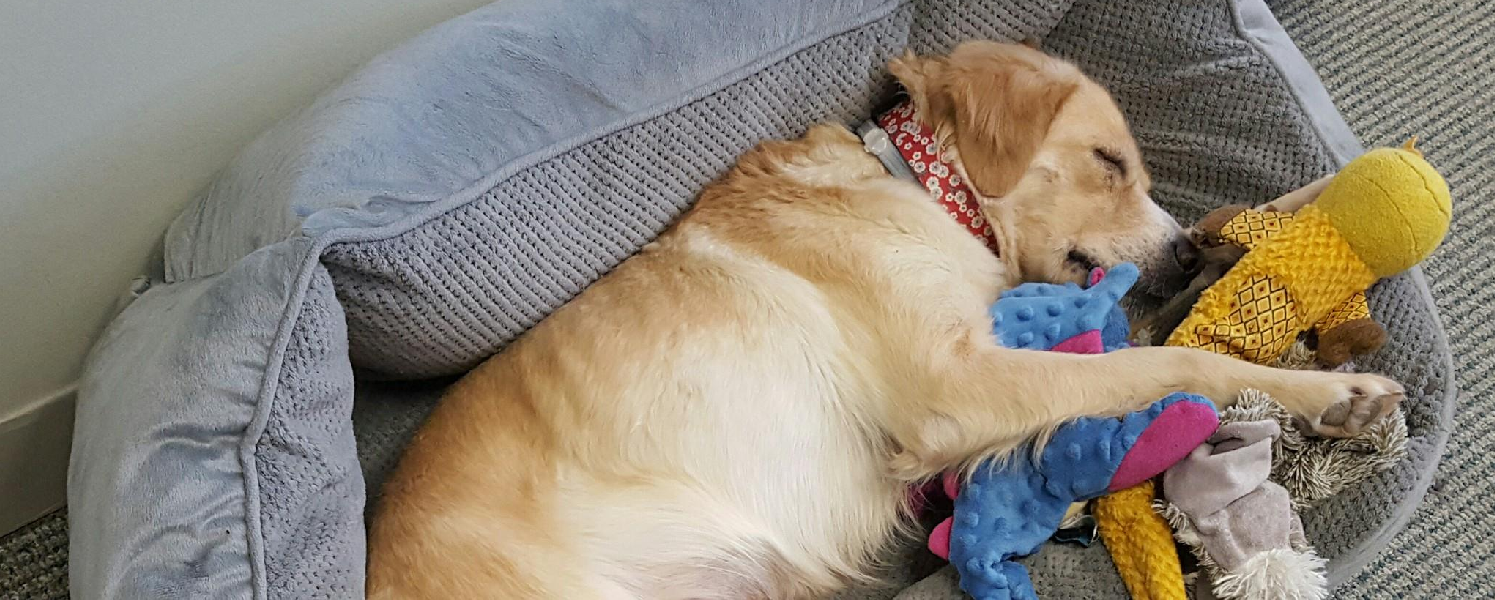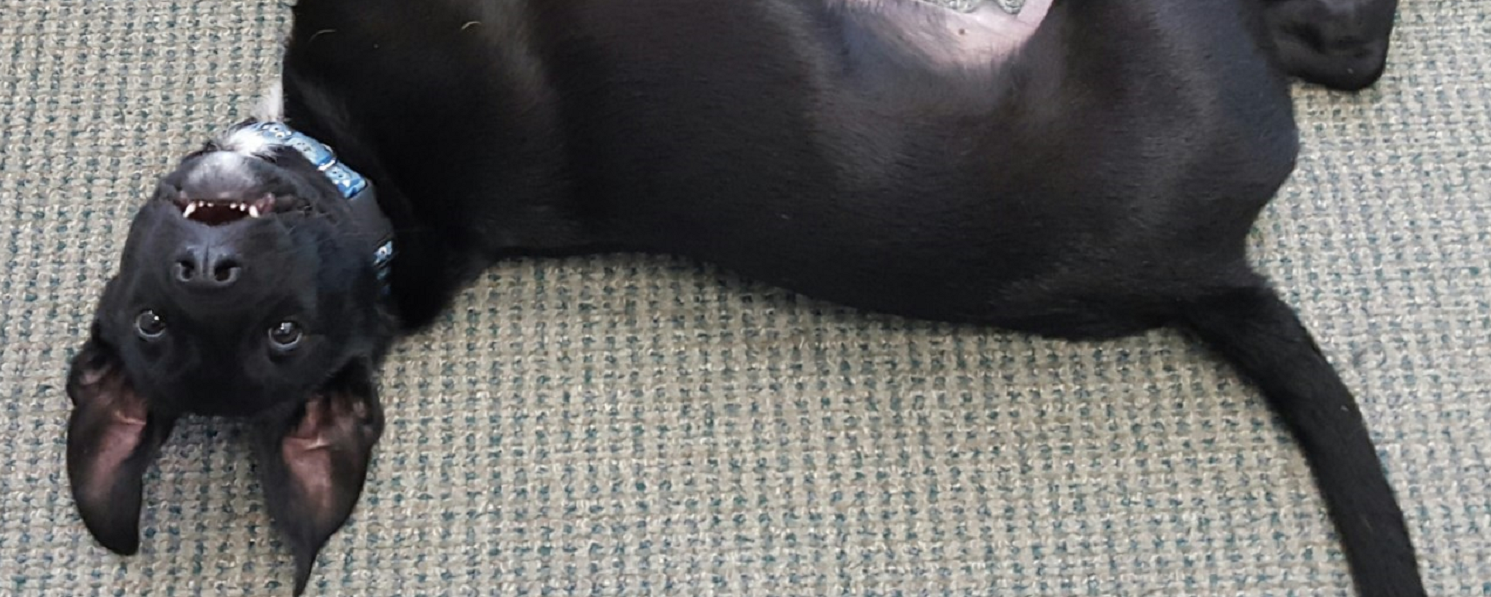Use this link below to identify your dog’s activities and behaviors that may be signs of osteoarthritis.
Comprehensive Exam- We recommend yearly evaluation by a veterinarian. Examinations are important to assess your pet’s health and address possible issues.
Vaccinations- We classify vaccines as Core and Non-Core. Core Vaccines are recommended for all dogs. Non-Core vaccines are given case by case.
1. Rabies- This is a core vaccine. Rabies is a viral infection that can affect all warm-blooded animals. It is caused by a bite from an infected animal. This is required by law. It cannot be given before 12 weeks of age. The first vaccine is good for 1 year, and thereafter will be good for 3 years.
2. DHLPP- This is a core vaccine. DHLPP stands for Distemper, Hepatitis, Leptospirosis, Parainfluenza and Parvovirus. This is given at 6-8wk,10-12wk, 14-16wk
- Distemper- Is a widespread virus that has a high mortality rate if infected. The virus attacks various tissues in the body and can cause diarrhea, fever, nasal and ocular discharge, respiratory disease, decrease in appetite, and neurologic signs, such as muscular spasms or paralysis.
- Hepatitis- This virus is caused by adenovirus and can affect a wide range of tissues, including the liver, kidney, spleen, and lungs. Signs typically are fever, abnormal bleeding, loss of white blood cells, and occasionally a blue opacity of the eyes. This virus is shed in the urine and can survive outside for several weeks or months.
- Leptospirosis- This is a bacterial infection that is passed from the urine of wildlife or livestock, as well as from contaminated food or water. It is prevalent in stagnant surface water, moist soil, ponds and lakes. Dogs can become infected by drinking, swimming, or walking through contaminated water. It can also enter the bloodstream via a cut on skin or mucous membranes. This can be transmitted to people as well so good hygiene is very important. Signs include fever, loss of appetite, vomiting, diarrhea, weakness and lethargy. In severe cases it can cause kidney or liver failure.
- Parainfluenza- This virus is an infectious respiratory disease that is easily transmitted via air and direct contact especially in kennels or among other dogs. Signs may include upper respiratory signs such as nasal or ocular discharge, fever and possible pneumonia.
- Parvovirus- This is a virus that affects the intestinal tract. It is easily spread due to the large amount of virus in the feces, which then contaminated the environment. Signs of this are vomiting and diarrhea and can lead to severe dehydration if not addressed soon.
3. Bordetella- This is a non-core vaccine. Bordetella is bacteria that damage the cells covering the hair-like cilia that line the upper respiratory tract. This is highly contagious and is transmitted via respiratory. It can be found in boarding or grooming facilities, dog parks, or multi-dog homes. Signs include coughing, spasmodic coughing, hacking or retching and occasionally fever. We recommend this for any dog who will be boarding, groomed, attending daycare, and puppy class or have contact with multiple dogs. This can be given at first visit then boosted in 3-4 weeks.
4. Lyme- This is a non-core vaccine. This is a bacteria transmitted via an infected deer tick, and can affect different parts of the body. Signs include limping, joint swelling, fever, swollen lymph nodes, painful joints and loss of appetite or lethargy. Dogs often times don’t show signs for 2-5 months post infection. We recommend this to any dog who has exposure to areas with high deer population, go camping or hiking or are outside a lot. This is given at 12 weeks and needs to be boosted 3-4 wks later.
Fecal- We recommend doing fecals at first visit, and at last visit (6wk&12wk). If the first fecal is positive we recommend waiting about 4-6 weeks later for recheck. We then recommend doing annual testing. The fecal test for roundworms, hookworms, and whipworms, as well as giardia and coccidian. All of these parasites can be transmitted to other animals as well as humans, so good hand washing is recommended. We will initially deworm with Strongid-T for 3 doses spread out by 10-14 days and depending on fecal results may need to medicate with another type of dewormer or antibiotic.
Spay/Neuter- We recommend spaying and neutering all dogs at about 6 months of age. Spaying early will greatly reduce the risk of mammary cancer and eliminate unwanted litters or infection to the uterus. Neutering helps prevent testicular and prostate cancer.
Diet- We recommend feeding a high quality food, these foods have well balanced nutrition for the canine patient and often times you will find that you need to feed less amount than other inferior brands. This is because the higher quality foods do not added “fillers”. We recommend going to Perkiomen Valley Pet Eatery in Trappe, as their staff is very well educated on nutrition. We recommend meal feeding (twice a day) instead of just leaving food out. This will help in potty training as well as help reduce risk of obesity.
Heartworms- Heartworms are transmitted via mosquitos. A mosquito bites a heartworm positive dog and picks up the microfilaria (baby worms) which then grow into larvae. When the mosquito then bites another dog the larvae are then deposited into the bloodstream of that dog, and it migrates through the chambers of the heart and into the vessels in the lungs. They can grow to about 1 foot in size. Signs include exercise intolerance, coughing, heart failure. It then takes about 6 months to mature into adult worms. Therefore we highly recommend heartworm prevention of either Interceptor Plus or Heartgard Plus
Interceptor Plus- Interceptor Plus is a monthly preventative that protects your dog from heartworms, roundworms, whipworms, and hookworms, and tapeworms. We recommend giving this year round.
Heartgard Plus- Heartgard Plus is a monthly preventative that protects your dog from heartworms, roundworms, whipworms, and hookworms. We recommend giving this year round.
Parastar- Parastar is a topical flea and tick preventative. This is applied monthly and we recommend treating year round. If you are going to bathe the dog, we recommend bathing and waiting 3-4 days before applying product.
Bravecto- Bravecto is an oral flea and tick preventative. This is given every 3 months and we recommend treating year round. This cannot be started until 6 months of age.
Seresto collar- Seresto is a collar that gives you 8 months of protection from fleas and ticks. It is the only product that also repels ticks. There is no powdery residue and is safe to use around children
Pet Insurance- We recommend Pet Plan for all animals. This insurance seems to be the most well rounded insurances out there. You can choose different plans, bronze, silver, or gold and choose different copays and percentage of return. This is the only plan that allows you to get 100% back. They do not cover routine procedures. We also recommend Embrace, this works very similarly to Pet Plan, but you can also purchase a wellness package. For a review of other plans, please visit www.petinsurancereview.com.
Puppy Social- We recommend taking your puppy to a puppy class to help socialize, create good manners and break any bad manners. At this time we do not have a class here, but we do have a Puppy Social once a month where you can bring in you puppy for socialization and ask the trainer any questions you may have. We recommend Jerri from Bark Busters for classes. She is at Perkiomen Pet Eatery and also does our puppy social. Please inquire at front desk for information.











